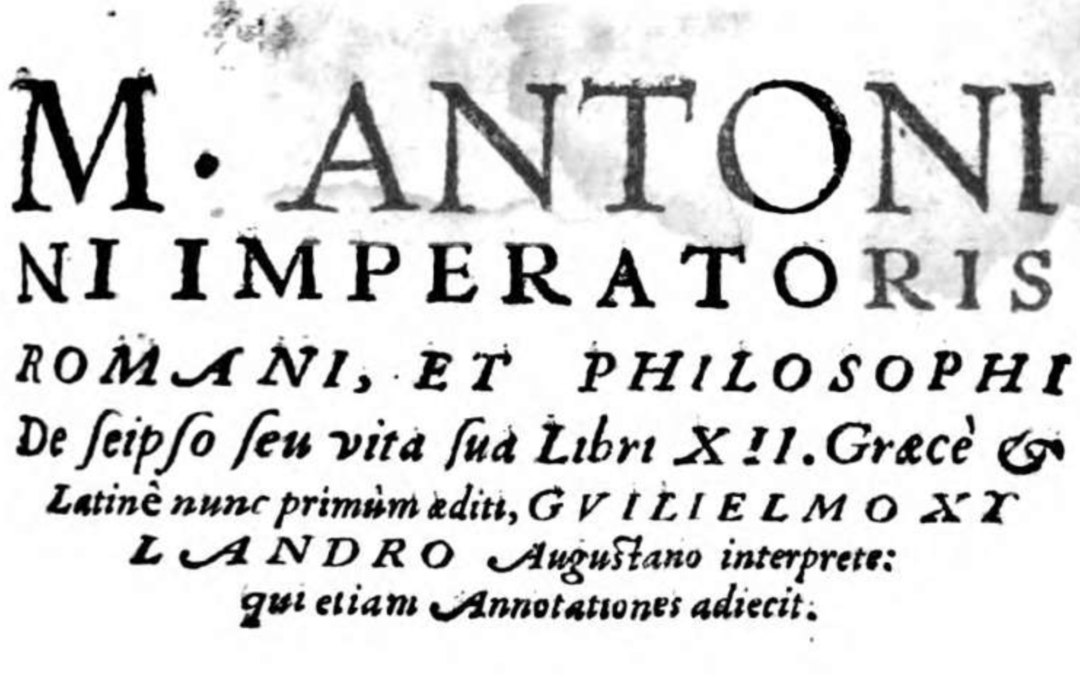“Meditations” is a collection of personal writings by the Roman emperor Marcus Aurelius, who ruled from 161-180 CE. The book is considered one of the greatest works of Stoic philosophy and has had a profound influence on Western thought.
The book is composed of 12 books, each containing a series of reflections and meditations on various aspects of life, including ethics, virtue, nature, and the nature of the universe. The writings are not organized thematically or chronologically, but rather reflect Marcus Aurelius’ own personal thoughts and experiences.
The work is often described as a form of self-help or spiritual guidebook, with Marcus Aurelius offering advice on how to live a good life and cultivate virtue. He stresses the importance of living in accordance with nature and being mindful of one’s thoughts and actions.
“Meditations” has been praised for its clarity, honesty, and wisdom, and has been translated into numerous languages. The work has been read and admired by countless individuals over the centuries, including philosophers, writers, and leaders, who have found inspiration and guidance in Marcus Aurelius’ insights.
Several philosophers and scholars have been critical of “Meditations” by Marcus Aurelius over the years. Here are a few examples:
- Friedrich Nietzsche: Nietzsche was critical of Stoic philosophy in general, and he saw “Meditations” as a particularly problematic example of this tradition. He argued that the book represented a kind of “slave morality,” in which individuals are encouraged to accept their lot in life rather than strive for greatness or challenge the status quo.
- Michel Foucault: Foucault was critical of the individualistic and self-focused approach of “Meditations,” which he saw as reflecting a broader trend in Western philosophy towards the prioritization of individual identity and subjectivity over collective action and social transformation.
- Martha Nussbaum: Nussbaum has argued that “Meditations” is overly narrow in its focus on personal virtues and self-improvement, and that it fails to account for the ways in which social and political institutions can either support or undermine these virtues. She has also criticized Marcus Aurelius’ acceptance of hierarchical power structures, such as slavery and patriarchy.
- Pierre Hadot: Hadot, a scholar of ancient philosophy, has argued that “Meditations” can be seen as reflecting a particular philosophical tradition, known as “spiritual exercises,” which emphasizes the cultivation of certain mental and emotional states through regular practice. However, he has also noted that this approach can be seen as overly prescriptive and lacking in flexibility, and that it may not be suitable for everyone.
Quotes
Sure, here are 20 quotes from “Meditations” by Marcus Aurelius, grouped into different categories:
On Virtue:
- “The happiness of your life depends upon the quality of your thoughts.” (Book 2, Section 3)
- “The true worth of a man is to be measured by the objects he pursues.” (Book 7, Section 26)
- “He who lives in harmony with himself lives in harmony with the universe.” (Book 5, Section 16)
- “The best revenge is to be unlike him who performed the injury.” (Book 6, Section 6)
On Death and Impermanence:
- “You could leave life right now. Let that determine what you do and say and think.” (Book 2, Section 11)
- “Do not act as if you had ten thousand years to live.” (Book 4, Section 17)
- “Everything is ephemeral… Do not act as if you had ten thousand years to throw away.” (Book 4, Section 3)
- “Focusing on death will help you to focus on what is truly important in life.” (Book 2, Section 11)
On Inner Peace:
- “If you are distressed by anything external, the pain is not due to the thing itself but to your own estimate of it; and this you have the power to revoke at any moment.” (Book 8, Section 47)
- “The mind in itself has no needs, except for those it creates itself.” (Book 7, Section 26)
- “The soul becomes dyed with the color of its thoughts.” (Book 5, Section 16)
- “The power to live a good life is within us.” (Book 7, Section 59)
On Nature:
- “All things are woven together and the common bond is sacred, and scarcely one thing is foreign to another.” (Book 6, Section 38)
- “Everything is interwoven, and the web is holy.” (Book 6, Section 23)
- “Whatever happens to you has been waiting to happen since the beginning of time.” (Book 5, Section 8)
- “The universe is transformation: life is opinion.” (Book 4, Section 3)
On Self-Improvement:
- “The art of living is more like wrestling than dancing.” (Book 7, Section 61)
- “Receive without conceit, release without struggle.” (Book 8, Section 47)
- “The first rule is to keep an untroubled spirit. The second is to look things in the face and know them for what they are.” (Book 8, Section 49)
- “The object of life is not to be on the side of the majority, but to escape finding oneself in the ranks of the insane.” (Book 9, Section 13)
Citations:
All the quotes are from “Meditations” by Marcus Aurelius, translated by Gregory Hays (Modern Library, 2002).
